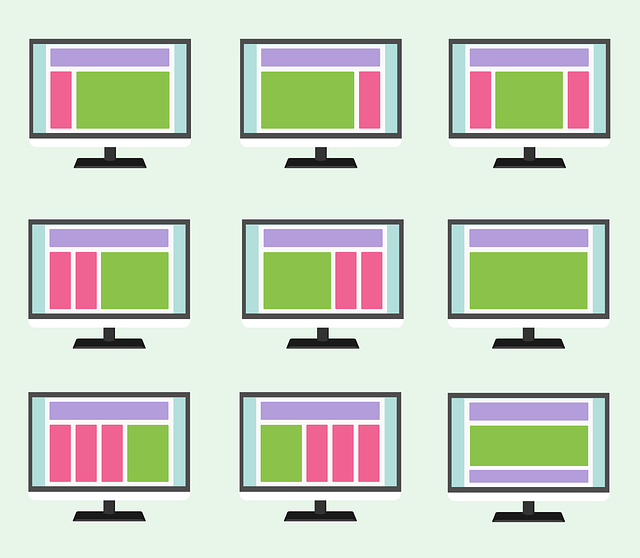Table of Contents
Web Directory: Understanding the Basics
Web directories play a crucial role in helping users navigate the vast landscape of the internet. The concept of web directories is simple: they act as organized databases that categorize websites based on their content or industry. In human-edited web directories, website owners can manually submit their sites to specific categories, allowing users to easily find relevant information. On the other hand, Bid for Position directories offer a different approach, where website owners can bid for higher placement in the directory’s search results. This allows businesses to gain better visibility and attract more traffic to their websites. Web directories provide a valuable service by curating and indexing the ever-expanding web, making it easier for users to discover new and relevant websites.
Regardless of the type of web directory, the primary goal is to make finding information online more efficient and streamlined. By categorizing websites and providing organized lists, web directories enable users to navigate through a specific topic or industry more easily. This categorization process can be especially beneficial for niche markets or industries that may have limited online resources. Users can rely on web directories to quickly find trustworthy and relevant websites in their area of interest, saving them time and effort. Additionally, web directories can offer additional features such as reviews and ratings, allowing users to make informed decisions before visiting a website.
Differentiating Web Directories from Search Engines
Web directories have distinct features that differentiate them from search engines. Human-edited web directories, as the name suggests, are maintained and organized by human editors who review and categorize each website submission manually. This process ensures the quality and relevance of the listed websites, as human editors follow specific guidelines and criteria. On the other hand, Bid for Position directories allow website owners to bid on certain keywords or categories, and those who bid the highest appear at the top of the search results for those keywords.
The main contrast between web directories and search engines lies in how they retrieve information. Search engines utilize algorithms and complex algorithms to deliver search results based on relevancy, popularity, and other factors. In contrast, web directories rely on human curation and organization to present the list of websites per category or keyword. While search engines provide a vast array of results and prioritize the most popular websites, web directories offer a more focused and categorized approach, which can be particularly useful for users looking for niche or specific information.
The Evolution of Web Directories
In the early days of the internet, human-edited directories were the primary means of organizing and categorizing websites. These directories were maintained by a team of editors who manually reviewed and approved each submitted website. This meticulous process ensured that the directory only included high-quality and relevant websites, making it easier for users to find the information they were looking for.
However, as the internet grew exponentially, manually maintaining these directories became increasingly challenging and time-consuming. This led to the emergence of Bid for Position directories, where website owners could pay to have their sites prominently featured in the directory’s listings. While this approach allowed for a faster and more automated process, it also introduced the risk of low-quality websites slipping through the cracks in favor of those with greater financial resources. Despite these challenges, the evolution of web directories has been driven by the constant need to adapt to changing technologies and user expectations.
• The emergence of search engines like Google revolutionized the way people find information on the internet. Instead of relying solely on web directories, users could now enter keywords into a search engine and receive a list of relevant websites.
• This shift in user behavior led to a decline in the popularity of web directories, as search engines became the go-to method for finding information online.
• However, web directories have not become obsolete. They still serve as valuable resources for niche industries or specific topics that may not be easily searchable through traditional search engines.
• In recent years, there has been a resurgence in the popularity of curated web directories. These directories are often maintained by industry experts or enthusiasts who carefully select and categorize websites based on their quality and relevance.
• Curated web directories provide users with a curated list of trusted resources within a particular field, saving them time and effort in searching for reliable information.
• Additionally, some modern web directories have incorporated social elements into their platforms. Users can contribute to directory listings by submitting their own recommendations or reviews, creating a more interactive and community-driven experience.
Overall, while the role of web directories has evolved over time, they continue to play an important part in organizing and categorizing websites for users seeking specialized information or niche interests.
The Purpose and Benefits of Using Web Directories
Human-edited web directories and Bid for Position directories serve a crucial purpose in the digital landscape. These directories act as a centralized repository of websites, categorizing them according to various topics and themes. By submitting your website to these directories, you enhance its visibility and increase the chances of being discovered by potential users.
One of the primary benefits of utilizing web directories is the potential for targeted traffic. When users browse through these directories, they are actively seeking information or services related to specific categories. By ensuring your website appears in the appropriate directory, you can attract relevant traffic that is more likely to convert into customers or engage with your content. Moreover, web directories can also improve your website’s credibility as being listed in a trusted directory lends an added layer of legitimacy and reliability to your online presence.
How Web Directories Work
Web directories function as a centralized platform that organizes websites based on specific categories or keywords. Human-edited web directories, as the name suggests, involve actual humans reviewing and approving the submissions made to the directory. This ensures that the listed websites are of high quality and relevance, providing users with a curated selection of valuable resources. On the other hand, Bid for Position directories operate under a different model. In these directories, website owners can bid for a higher ranking within their chosen category, with the highest bidder securing the top positions. This approach allows website owners to gain prominent visibility but may also result in less relevant results for users.
When a website is submitted to a web directory, it goes through a process of evaluation by the directory editors or administrators. They review the content, layout, and relevance of the website to determine its suitability for inclusion. For human-edited directories, this evaluation may also involve verifying the accuracy and credibility of the information presented on the website. Once a website is approved, it is categorized and listed accordingly within the directory, making it accessible to users who navigate the directory by browsing different categories or using search functionalities.
Both human-edited web directories and Bid for Position directories offer distinct advantages. Human-edited directories emphasize quality and reliability, delivering reliable results to users seeking specific information or resources. On the other hand, Bid for Position directories allow website owners to gain immediate visibility and potentially attract more traffic, particularly if they have the financial means to outbid their competitors. These different approaches provide website owners and users with options that suit their needs and goals in using web directories.
Important Factors to Consider When Submitting to Web Directories
When it comes to submitting your website to web directories, there are several important factors to consider. Firstly, you need to understand the difference between human-edited web directories and bid for position directories. Human-edited directories involve a team of editors who manually review and categorize each submitted website. On the other hand, bid for position directories allow website owners to pay for higher placement in search results.
Secondly, you should carefully select the directories you submit to. It’s crucial to evaluate the credibility and reputation of the directories to ensure that they can provide genuine value to your website. Look for directories that have a good track record, high domain authority, strong search engine visibility, and relevant categories. This will help you to reach your target audience effectively and increase your website’s visibility in search engine results pages.
The Role of Web Directories in SEO
are critical tools in search engine optimization (SEO) strategies. These directories play a significant role in enhancing a website’s visibility and organic search rankings. By submitting a website to reputable web directories, site owners can increase their chances of being indexed by search engines and improve their overall online presence.
Human-edited web directories are platforms where websites are manually reviewed and categorized by a team of editors. These directories provide a curated list of websites related to specific topics or industries, making it easier for users to find relevant information. Search engines consider the presence of a website in reputable directories as a positive signal, helping to establish its credibility and authority. Additionally, bid for position directories allow site owners to bid for higher placement in search results, providing an opportunity to enhance visibility and attract more organic traffic. Overall, incorporating web directories into SEO strategies can be an effective way to optimize a website’s discoverability on search engines.
Exploring Different Types of Web Directories
Human-edited web directories and Bid for Position directories are two common types of web directories that exist today. These directories differ in their approach to organizing and listing websites.
Human-edited web directories involve a team of editors who review and manually approve website submissions. These directories prioritize quality over quantity, ensuring that only relevant and high-quality websites are listed. The editors use specific criteria, such as website content, design, and relevance, to determine whether a website is suitable for listing. This meticulous review process adds a layer of trust and credibility to the directory, as users can rely on the editors’ expertise in curating the listed websites.
On the other hand, Bid for Position directories operate differently. In these directories, website owners can bid for a higher ranking in the directory’s search results. The websites with the highest bids are placed at the top of the listings, gaining greater visibility and potential traffic. While this type of directory allows for more control over search rankings, it also raises concerns of fairness and quality. The websites listed in Bid for Position directories may not necessarily be the most relevant or trustworthy, as their position is determined by the amount of money they are willing to bid.
These two types of directories offer different approaches and advantages for users and website owners alike. Understanding their differences can help individuals make informed decisions when choosing the most suitable directory for their needs.
Common Challenges and Limitations of Web Directories
Common Challenges and Limitations of Web Directories
Human-edited web directories and Bid for Position directories, though they have their benefits, are not without their share of challenges and limitations. One of the common challenges faced by human-edited web directories is the extensive review process required for each submission. With a limited number of editors to review a vast number of submissions, the process can become time-consuming and lead to delays in listing new websites. Furthermore, the subjective nature of these directories may result in inconsistencies in the evaluation criteria, making it difficult for website owners to predict their chances of being accepted.
Bid for Position directories, on the other hand, face a different set of limitations. Since these directories prioritize listings based on the highest bidder, the relevance and quality of the content may be compromised. This approach can potentially lead to a lack of diversity and limited representation of valuable websites. Additionally, the cost associated with bidding for a higher position can be prohibitive for smaller businesses or individuals with limited resources, thereby limiting their chances of gaining visibility through these directories.
While these challenges and limitations exist, it is important to note that web directories continue to serve a purpose in the online landscape. The upcoming sections will explore the future of web directories and potential strategies to overcome these hurdles.
The Future of Web Directories
The future of web directories is uncertain, given the ever-evolving landscape of the internet. However, there are some trends that can shed light on what lies ahead for these platforms. One such trend is the gradual shift towards human-edited web directories. As search engines become more sophisticated in their algorithms, there is an increasing need for directories that provide curated and trustworthy information to users. Human editors can ensure the quality and relevance of listings, which can be invaluable in an age where automated processes sometimes fall short.
Another emerging trend in the future of web directories is the rise of Bid for Position directories. These directories allow businesses to bid for higher placements within the directory, giving them increased visibility and potentially more traffic. While these directories have faced criticism for potentially prioritizing paid listings over quality content, they can still provide benefits for businesses looking to enhance their online presence. With the right balance between paid and organic listings, Bid for Position directories might continue to grow in popularity, especially as businesses seek out alternative advertising opportunities.


